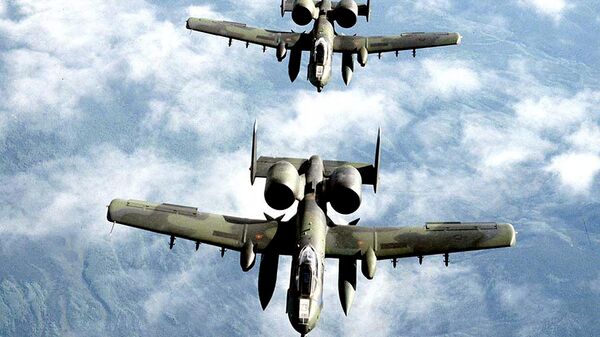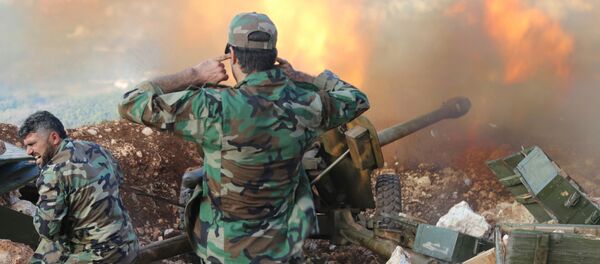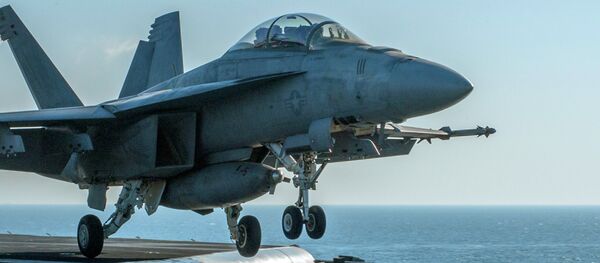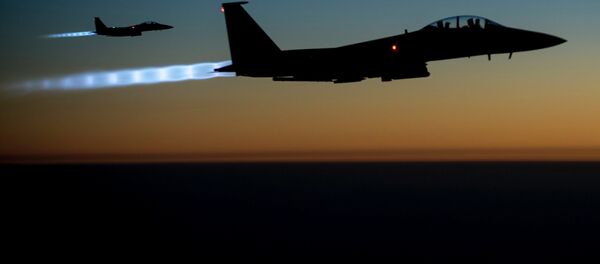It is unlikely that the US-led coalition's airstrikes in Syria's Deir ez-Zor region against the Syrian Arab Army (SAA) positions took place due to a mere "accident," Salman Rafi Sheikh, a political analyst and expert on Pakistani foreign affairs believes.
"A look at the pattern of how the US-led coalition has been striking in the region would further reveal that the last strike, which killed more than 60 Syrian soldiers, was not simply a mistake," Sheikh writes in his article for New Eastern Outlook.
Surprisingly, the deadly strike has been conducted at a time when the SAA was gaining momentum on the ground.
"The fact remains that the strike has taken place at a time when the Syrian army was successfully pushing ISIS [Daesh] back and bringing more and more [of the] region under its control," Sheikh underscored.
It seems that the SAA's military success "was clearly running counter" to the US' objective to weaken the Syrian government forces and prevent them from re-establishing Assad's authority in the country's troubled regions.
As the situation unfolds, the US is pursuing two conflicting goals in Syria: first, they seek to oust Syrian President Bashar al-Assad, while on the other hand they want to defeat Daesh.
The situation is further complicated by the fact that the Pentagon, most notably Secretary of Defense Ashton Carter, is opposing the US-Russian ceasefire deal on Syria, the analyst noted.
"With many high-ranking US officials, including those from its Defense establishment, being skeptical about the deal and opposing it to keep Russia from buttressing Assad, could it not be that the strike, which certainly could not have taken place without the Pentagon's approval, was actually meant to derail the deal?" Sheikh asked.
First Deputy Chairman of the Defense and Security Committee in Russia's Federation Council Franz Klintsevich shares a similar stance, believing that the Deir ez-Zor attack was hardly an "accident."
"The US conducted airstrikes on government forces in Syria deliberately and thoughtfully," he suggested.
According to Klintsevich, Washington's major goal is "to depose President Bashar al-Assad, bring the opposition to power and maintain their economic interests."
Russian envoy to the UN Vitaly Churkin echoed Klintsevich, stressing that "some aspects of the situation suggest that it could well have been a provocation."
Commenting on the issue, Yevgeny Satanovsky, head of the Moscow-based Middle East Institute, told the Russian online newspaper Vzglyad that there is something fishy about the US-led coalition's "accidental" airstrike against the SAA. Either the Pentagon's intelligence is worth nothing, or the US Department of Defense interpreted the US-Russian agreement on Syria in a pretty warped way, the expert underscored.
To add more fuel to the fire, the SAA is about to defeat a very suspicious Islamist group — Jund al-Aqsa — known to have earlier been supported by the US. Despite the group being relatively small, it possesses modern weapons and even surveillance drones.
Jund al-Aqsa was designated as a terrorist entity by the US only four days ago. However, it has been spotted colluding with both the former al-Qaeda affiliated al-Nusra Front and the Free Syrian Army — the so-called "moderate opposition." Given this, it is really hard to separate the wheat from the chaff on the ground, Krutikov noted.
In any event, the possible defeat of Jund al-Aqsa will shed the light on a wide range of questions, especially about the groups drones and the identity of the leader of the group operating under the alias Abu Abdul Aziz al-Qatari, the political analyst stressed.
It seems, however, that some Washington officials would rather leave a vast array of inconvenient truths about the Syrian war swept under the rug.






